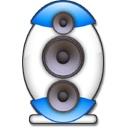
Everyone with a digital music collection of any size has this problem: their music tags are far from perfect. Maybe it's because you ripped the songs from a CD before it was in cddb or one of the other directories, maybe there was no cddb back when you took your first steps into digital audio, maybe your ripper didn't do a good tagging job - remember MusicMatch Jukebox?
Whatever the reason, however bad the tags, there is a pretty straightforward way to sort them out, and that's to let your computer fix them for you. I've tried a number of tools to do this, but the best I've found so far is BeaTunes. BeaTunes works on both Mac and Windows machines, all you need is a copy of iTunes with a library containing the (non-DRM'd) tracks you want to clean up.
The way BeaTunes works is that it analyzes the audio of selected tracks and creates a fingerprint which it then compares to a database run by MusicIP.com. If it finds a matching fingerprint, BeaTunes can use the associated track data to update your track's tags. Yes, it's just that simple, and pretty fast too. Even if your current tags aren't all that bad off, you can use this feature to add missing data, like release year and genre.
You can also use BeaTunes to analyze your library's tags and look for and repair a whole range of tag discrepancies. Let's say you have variations in your artist names, like: The Pogues and Pogues, or ACDC and AC/DC. BeaTunes has a library inspector feature that will find these differences, as well as a host of others, and present you with a list of what it suspects is wrong along with a simple click-to-fix interface. Let it suggest, choose the correct suggestions, & Bob's your uncle. The only tiny issue here is that similar album names by different artists - I have lots of "The Ultimate Collection" - are often grouped, but you can do a "ignore and don't show this again" for these types of things.
I've used BeaTunes on my library of ~40k songs, both to find missing meta data using fingerprints and to scrub and standardize tags, and was able to finally get a handle on 9+ years worth of shoddy data. The fingerprinting does take a while, but you can leave that unattended. And while it did take me maybe an hour or two total effort to select and approve the library analysis suggestions, the time was well worth it, especially since it's still cold and dark around these parts. I was surprised to find just how many little things were off, as well as how many songs I forgot I had because they were poorly filed. Even better, the act of cleaning the metadata made it possible for BeaTunes and iTunes to find lots more album artwork than was possible before I got sorted out. Now, coverflow looks a lot more like the commercials and a lot less like a ghostly reminder of just how bad I let things get.
All of the features I describe above are really secondary to the original design goal of BeaTunes' audio analysis capability, which is to identify the tempo of songs in beats per minute (BPM) and from there enable grouping and organizing of songs based on that BPM information. The point of this is to make it easy for you to group or create playlists of similar songs. Maybe you want to create a shuffle to put on your shuffle when you go running, or maybe Jimmy Smith helps you focus when you are writing, and you want to expand your soundtrack with similarly paced sounds. That's what this BPM thing is about, and BeaTunes does this very well. Here again, I was re-introduced to music I had neglected over the years because, like radio, people tend to limit themselves to a small subset of their collections at any given time just out of habit. And if you have a big central library of all the music your family owns, who knows what kind of bonding experience might come up if your kids find your Charles Mingus or Johnny Cash or you find their copy of The Grey Album?
So that's BeaTunes in about 650 words. I personally found it well worth the $25 registration price, but if you simply want to try it out it's available as a fully functional 14 day demo.





Comments
What if you don't run I-Tunes
What if you don't run I-Tunes? Any good tips for us?
Brandon C. said: What if you
unfortunately, no. neither for people who have iTunes DRM music. architecture is architecture, and this approach requires iTunes and unsercured tracks.
You should check out Fixtunes
You should check out Fixtunes then. Its not bad, but does require some hands on.
you answered your own
you answered your own question then. i'm good with beatunes because i do use itunes, of course.
Michael,
Michael,
FixTunes will work with your iTunes as well. FixTunes works right alongside your iTunes so you can see the corrections that are being made to your music and the album artwork that is being uploaded.
Kelly
We also just came out with a
We also just came out with a MAC version of FixTunes for our MAC users!